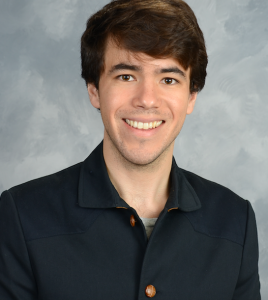This post was written by Cody Miller, Chair of the NCTE Lesbian, Gay, Bisexual, Transgender, and Queer Advisory Committee.
NCTE’s Lesbian, Gay, Bisexual, Transgender, and Queer Advisory Committee intends to make the creation of LGBTQIA*+1-affirming schools a central topic for the Literacy & NCTE blog in 2019. The committee is tasked with the following goals:
To develop plans to assist teachers in making schools, colleges, and universities safe and welcoming places for lesbian, gay, bisexual, transgender, gender nonconforming, intersex, queer, and questioning people and their allies to initiate and sustain conversation about the relevance of gendered, sexual, and affectional identities to reading and writing lives, to teaching lives, and to the well-being of students; to promote inquiry into issues of sexuality and gender identity and expression in the teaching of literacy and literature; to encourage proposals for presentation of such inquiry through public meetings such as the NCTE Annual Convention; to support individuals in the production of publishable written reports of such inquiry; and to select excellent proposals for inclusion in the Annual Convention.
The work of the committee remains as important as ever as examples of homo-, bi-, trans-, and queerphobia abound: from the federal government to our own NCTE Convention. And while there are moments that offer encouragement, such as NCTE’s revised position on gender and language and resources shared during Pride Month, our profession still has significant strides to make in order to create equitable and just schools for our LGBTQIA*+ students, families, and fellow educators. Thus, in 2019 we want to make those efforts central through the Literacy & NCTE blog.
Each month a member from the LGBTQ Advisory Committee will provide pedagogical and curricular insights into challenging systemic homo-, bi-, trans-, and queerphobia that permeates our classrooms and schools. Grounded in our own classroom experiences, we aim to provide a pathway for imagining and creating classrooms where the lives of LGBTQIA*+ students, families, and educators are valued and honored. In our pursuit to create such classrooms and schools, we must also name and challenge other systemic forms of oppression including racism, sexism, classism, ableism, and xenophobia.
To quote NCTE’s Standing Committee Against Racism and Bias: there is no apolitical classroom.
The decision to exclude LGBTQIA*+ voices or present such topics as “controversial” in classrooms is as much as a harmful political decision as those that made headlines in 2018. California and later, New Jersey, broke ground for requiring the inclusion of LGBTQ history in K-12 schools last year. While the legislative victories were worth celebrating, we must also acknowledge the reality that 48 states still have no similar requirements.
Additionally, LGBTQ books are frequent on “most banned books” lists. Educators can enact harm through curricular and pedagogical inaction even as they profess and use their electoral power for the advancement of LGBTQIA*+ rights. Our committee, which is composed of educators spanning K-12 and university classrooms, aims to support other educators in naming the political dimensions of teaching and fighting to create affirming spaces for LGBTQIA*+ students, families, and educators.
The committee is composed of the following educators:
- Darryn Diuguid is an associate professor of education at McKendree University in Lebanon, Illinois.
- Katherine Mason Cramer is an associate professor of English education at Wichita State University, Kansas.
- Adam Crawley is an assistant professor of literacy education at Oklahoma State University in Stillwater.
- Judith Hayn is a professor of teacher education at the University of Arkansas at Little Rock.
- Rick Joseph is a teacher at Birmingham Covington School, where he teaches 5th and 6th grade, in Bloomfield Hills, Michigan.
- Cody Miller is a teacher at P.K. Yonge Developmental Research School, where he teaches 9th grade English, in Gainesville, Florida.
- sj Miller is a faculty associate at University of Wisconsin in Madison.
- Summer Pennell is an assistant professor of English education at Truman State University in Kirksville, Missouri.
- Vanessa Perez is the library media specialist at Clinton High School in Clinton, Oklahoma.
- Dana Stachowiak is an assistant professor of curriculum and instruction at the University of North Carolina, Wilmington.
- Tadayuki Suzuki is an associate professor of literacy at SUNY Cortland in Cortland, New York.
- LaMar Timmons-Long is an English teacher at Hudson High School of Learning Technologies in New York City.
- Craig Young is an associate professor of teaching and learning at Bloomsburg University of Pennsylvania in Bloomsburg.
We look forward to sharing our professional insights and engaging in dialogue with readers of the Literacy & NCTE blog.
1 Lesbian, gay, bisexual, transgender, queer and questioning, intersex, asexual, ally*+ (*+means the interdeterminacy of identity)


